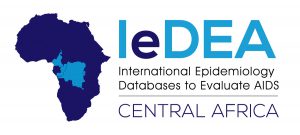The Central Africa IeDEA (CA-IeDEA) project is part of the International Epidemiologic Databases to Evaluate AIDS (IeDEA)– an international research consortium established in 2005 by the U.S. National Institute of Allergy and Infectious Disease (NIAID) to address high priority HIV/AIDS research questions.
The CA-IeDEA network includes 15 partners in Burundi, Cameroon, the Democratic Republic of Congo (DRC), and Rwanda, who are utilizing implementation science to identify effective strategies for optimizing HIV care outcomes, including timely diagnosis and care enrollment, care retention, ART initiation and viral suppression. CA-IeDEA partners are also conducting clinical epidemiologic investigations of co-morbidities among people living with HIV , including non-communicable chronic diseases, and mental health and substance use disorders. Members of the CA-IeDEA team also lead and contribute to multi-regional IeDEA projects, and maintain updated population-based data from various sources for use in examining contextual determinants of HIV outcomes.
CA-IeDEA research is jointly led by Dr. Denis Nash (CUNY ISPH) and Dr. Kathryn Anastos (Albert Einstein College of Medicine), in partnership with investigators from the Centre National de Reference en Matière de VIH/SIDA (Burundi); the Centres de Traitement Ambulatoire de Pointe Noire and Brazzaville (Republic of Congo); Douala General Hospital/Clinical Research Education, Networking and Consultancy (CRENC) (Cameroon); the Kinshasa School of Public Health and Kalembelembe Pediatric Hospital (DRC); Rwanda Military Hospital, Data Solutions LLC, Vanderbilt University, Columbia University, Ohio State University, and Virginia Commonwealth University.
Additional projects have been funded that also partner with the CA-IeDEA network.
- IeDEA Climate supplement
- Understanding and mitigating the influence of extreme weather events on HIV outcomes: A global investigation













